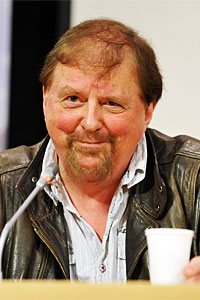'I consult with my father on all issues, whether on private matters or about work, and have done since I was young," said Paetongtarn Shinawatra, Thailand's new and youngest prime minister at 38 years of age. She is the third member of the Shinawatra family to hold this office, and part of the "evil cycle" that has paralysed the country's politics for the past 18 years.
The evil cycle began when her father, Thaksin Shinawatra, a self-made telecoms billionaire of humble origins, was overthrown by the army. He had become prime minister in 2001 on a populist platform and kept his promises of help for the poor so faithfully that he was re-elected by a landslide in 2006 -- so the military stepped in.
The senior generals were and still are closely connected to the conservative old-money establishment, and to defend their wealth and privileges they had long fostered a hyper-royalist reverence for the monarchy. They had also gained almost complete control of the courts.
Thaksin was found "guilty" of various crimes and went into exile to avoid jail, but permanently denying the rural population and the urban poor any real political voice does not work in a country whose people think they live in a democracy.
The army killed a lot of innocent civilians in the 2010 protests against thinly disguised military rule, but it's not just a murder machine like its Burmese counterpart.
Some of its officers were deeply upset about slaughtering unarmed fellow Thais in the streets -- and they managed to talk the top brass into holding a free election in 2011.
They did that by promising that pro-army political parties would win, but they were wrong. The voters promptly made Thaksin's younger sister, Yingluck Shinawatra, prime minister in his stead.
Like her brother, she favoured the farmers and the urban poor, and like him she was overthrown by the army in 2014. She followed him into exile to avoid jail too.
The military stayed in power this time, although Gen Prayut Chan-o-cha eventually began pretending he was an elected prime minister, not so much to fool the Thais as to present a more acceptable face to the rest of the world.
And the rapid growth that once made Thailand an Asian "tiger cub economy" has become anaemic: only 2.7% this year.
What has stalled the growth of both Thailand's economy and its democracy is an unusually strong and united "establishment" that includes the old rich, the army, the courts and a substantial part of the Bangkok middle class.
They simply cannot accept the urban poor and the rural majority having an equal say in how the country is run.
A coalition between the Move Forward Party and Pheu Thai, the current vehicle of the Shinawatras, would have had a comfortable majority in parliament, but that didn't happen.
The leader of Move Forward, Pita Limjaroenrat, was suspended from parliament by the Constitutional Court on specious charges. The entire party has now been dissolved by the court, although it was immediately refounded with a new name, the People's Party.
Pheu Thai made a coalition deal with the military and royalist parties to form a government, presumably in exchange for the return from exile of its exiled leader Thaksin and his sister Yingluck.
A Pheu Thai Party activist, Srettha Thavisin, was made coalition leader and prime minister -- but he has now been forced to resign by the Constitutional Court.
The political casualty list is getting so long that they are now bringing up the reserves, notably in the form of Thaksin's youngest daughter Ms Paetongtarn -- who promises to do as prime minister whatever her father thinks best.
But the blizzard of strategies and stratagems, bargains and betrayals will probably continue. Thailand is still trapped on the threshold of becoming a real democracy, but it still hasn't managed to cross it.
Gwynne Dyer is an independent journalist whose articles are published in 45 countries. His latest book is 'Intervention Earth: Life-Saving Ideas from the World's Climate Engineers'.
